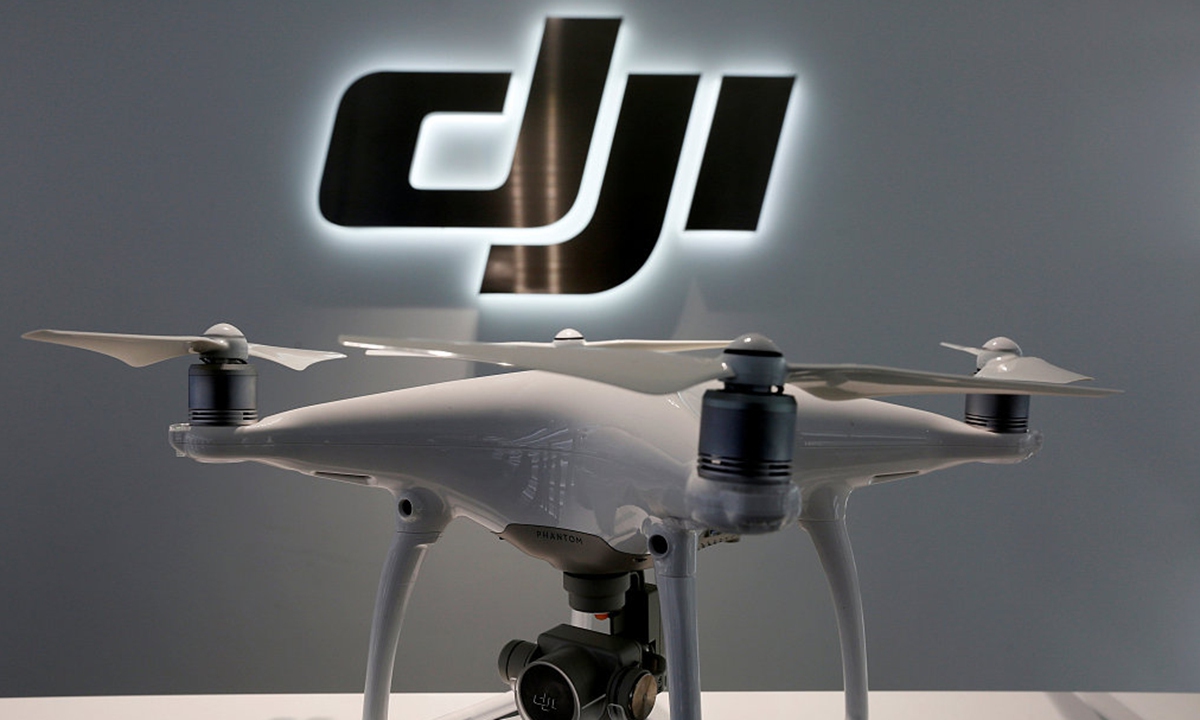
DJI Photo:VCG
The US Senate Armed Service Committee has reportedly released the National Defense Authorization Act (NDAA) in which it held off demands to ban Chinese DJI drones from accessing the US market, which experts said on Tuesday once again demonstrates the resilient demand for Chinese advanced products despite decoupling attempts.
According to industry information site DroneDJ.com, the Senate Armed Services Committee recently released its version of the NDAA, which notably omits demands to ban new DJI drones from entering the US market.
The House passed its version of the bill last month, with provisions to stop the Federal Communications Commission (FCC) from issuing new licenses to DJI over national security concerns, the report said.
While there was no clear mention of why the ban was held off, experts and some media outlets said that it may have to do with the fact that US demand for Chinese products remains strong, and seeking decoupling from China in the field will backfire on a wide range of US sectors, particularly agriculture.
"I believe the US government's action wasn't merely a goodwill gesture; rather, it reflects the reality that there hasn't been a suitable alternative found in the realm of drones to replace Chinese products," Zhou Mi, a senior research fellow at the Chinese Academy of International Trade and Economic Cooperation, told the Global Times on Tuesday, suggesting that practical needs have driven the US to reconsider its approach in light of the possible negative effects caused by the ban.
The House version of the bill sent shockwaves through the agricultural community last month as it included amendments from the so-called "Countering CCP Drones Act" that would add equipment and services from DJI to the "covered list," blocking DJI from getting FCC licenses for future drone models, according to another report by AgFunderNews, a food industry news platform.
The Chinese drone products have been found to be very useful and popular in many sectors in the US, making a good contribution to the work efficiency of users including farmers and firefighters.
Four out of every five agricultural drones utilized by US farmers are DJI models, according to the AgFunderNews report.
"We see that there is a wide range of complementarity between China and the US. It's not just about one side achieving its development goals independently in certain areas, but win-win outcomes for both sides," Zhou said, noting that if China and the US were to pursue decoupling for political reasons, it would undoubtedly have adverse effects on their economies and industries.
The US repeatedly attempted to block DJI drone products from entering the country. In 2017, the US Department of Defense placed DJI on a sanctions list but later found no comparable products in terms of cost-effectiveness in the same price range. The ban was lifted in 2018.
On December 18, 2020, citing "national security concerns," the US Department of Commerce added 59 Chinese entities, including DJI, to the so-called entity list. In response, a DJI spokesperson expressed disappointment with the US government's decision.
Decoupling not only affects Chinese companies but, more crucially, is detrimental to the US itself, including its enterprises in the farming sector, which is its pillar industry, Gao Lingyun, an expert at the Chinese Academy of Social Sciences, told the Global Times on Tuesday.
"Such decoupling is practically impossible for the US... More importantly, this also illustrates those previous actions by the US, purportedly based on issues like security concerns or data leaks, to suppress Chinese companies and products were unfounded," Gao said, urging more efforts by the US to return to the right track of mutual cooperation based on win-win outcomes.
Global Times

